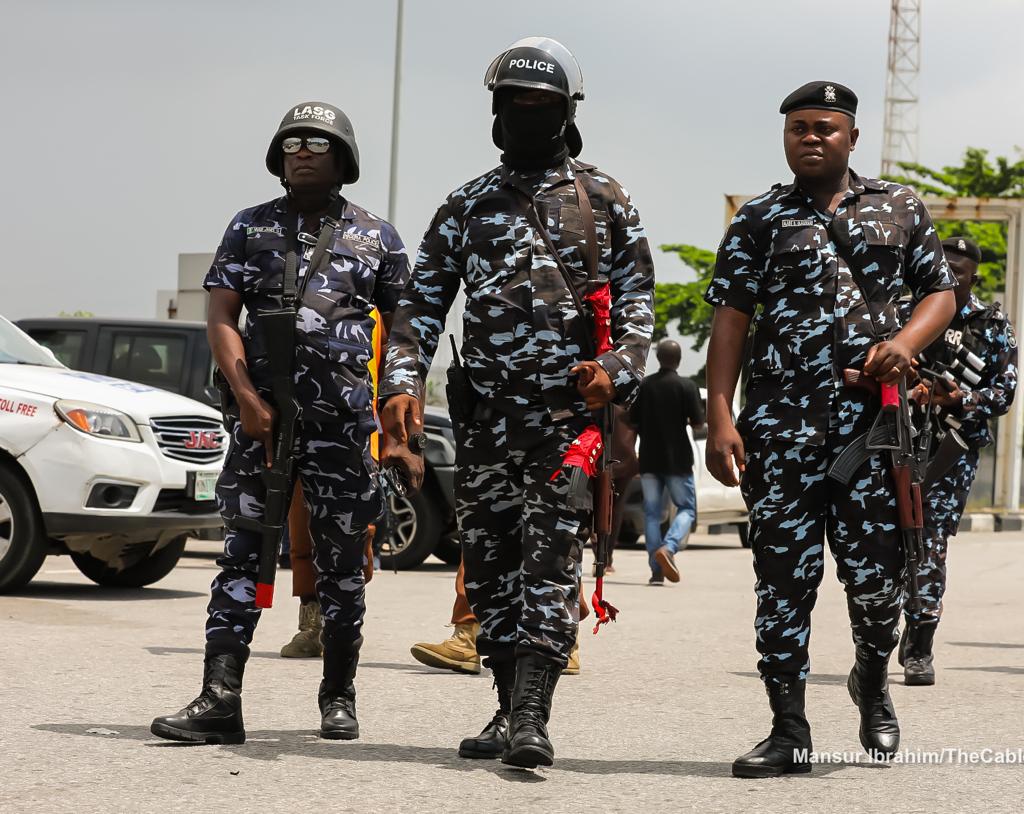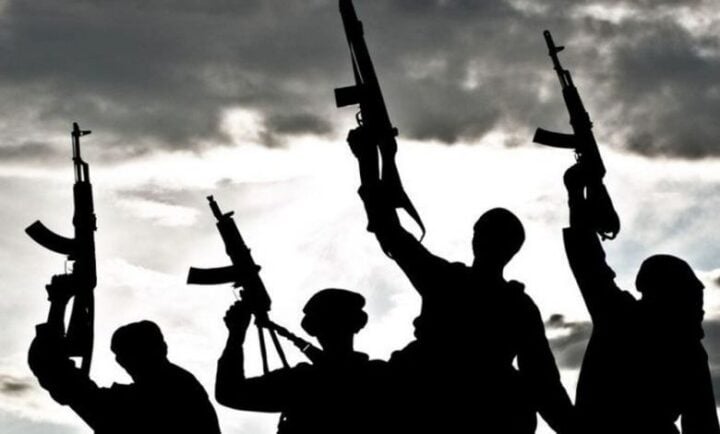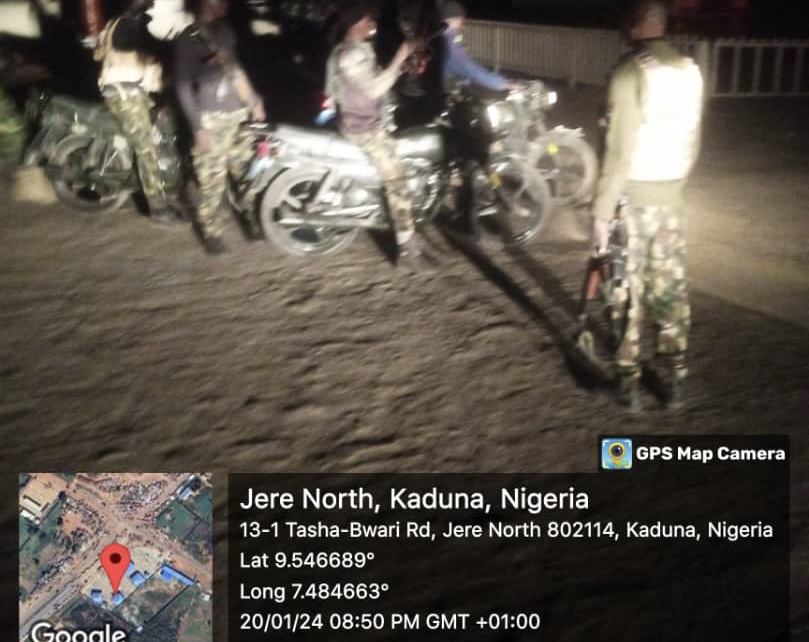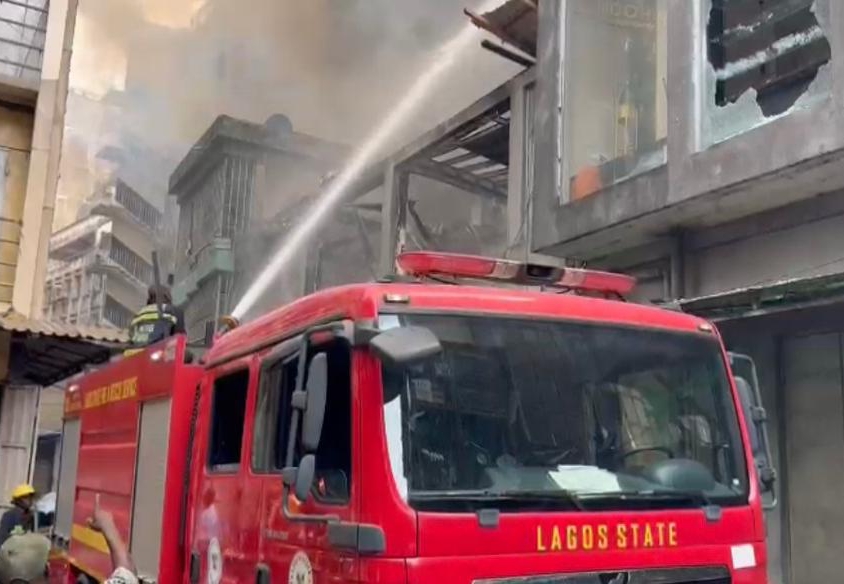Since December 24, 2023, when suspected bandits attacked Garam, a community in Tafa LGA of Niger state, bordering the Bwari area council in the federal capital territory (FCT), abductions of residents have occurred almost daily.
From Kuduru to Garam, Azhu to Kawu in Niger state and New Zuma in the FCT, terrorists have attacked and abducted over 80 residents and killed close to 10 people.
Before the recent wave of attacks and kidnappings, according to the data sourced from the ACLED server by TheCable Index, 254 persons were abducted in the FCT in 2023. Twenty-one of the incidents happened in December.
ATTACKS AT 11 P.M.
Advertisement
Before they went on the rampage, in September, the bandits stormed the residence of Danladi Iyah, chairman of Tafa LGA at Azhi Garam.
It was a few minutes past 11 p.m. and they shot sporadically, but were repelled by a combination of police personnel and operatives of the Nigerian Security and Civil Defence Corps (NSCDC). No one was hurt.
After the attack, things went back to normal but the security in the area was not improved despite intel that the bandits would relaunch assault.
Advertisement
During the December 23 attack on Garam, a pastor with the Redeemed Christian Church of God (RCCG) was killed while seven persons were abducted.
The terrorists on December 28 invaded an estate in Kuduru, also a community under Tafa LGA neighbouring Bwari. Seven residents, including children, were whisked away. The attack was also a few minutes after 11 p.m.
It has been more than three weeks after the invasion, but none of the abductees has been released, while the bandits are requesting N10 million ransom per head.
While residents were yet to understand the sudden infiltration of the bandits, another attack was launched on December 29 at Azhu village. After the terrorists operated for less than an hour beginning from 11 p.m., nine villagers were taken away and two of them were killed.
Advertisement
On the night of January 15, the bandits returned to Garam and abducted 15 people, including children.
ABDUCTION OF SIX SISTERS AND KILLING OF NABEEHA AND ARIYO

On January 5, a family of seven, including six sisters and their father, was abducted at Zuma 1 in the Bwari area of Abuja.
The bandits, according to reports, invaded the residence of the victims at about 11 p.m. During a gun battle with the terrorists and the police who were alerted to the attack, two officers were wounded while a family member of the abducted victims died in the gun duel.
Advertisement
However, on Sunday, there was news that one of the girls, Nabeeha, a 500-level student at Ahmadu Bello University, was executed by the abductors.
“We unfortunately lost Nabeeha to the battle,” Asiya, a family member, said. She added that the kidnappers had earlier increased the ransom from N60 million to N65 million.
Advertisement
The kidnappers also threatened to kill more girls if the family failed to meet up with the payment of N100 million that they increased the ransom to.
Also, Folorunsho Ariyo, a 16-year-old secondary school girl, was abducted on January 7 from Sagwari Estate at Dutse and was among four abductees executed by the terrorists alongside Nabeeha.
Advertisement
RESIDENTS FLEEING COMMUNITIES
While the police have assured that the situation is under control, residents of the affected communities, especially those in Garam, have abandoned their homes. Since the first attack on December 24, none of the abductees have been rescued.
Advertisement
TheCable understands that many landlords have relocated their families to either a safe place in the heart of Abuja or to their hometowns outside the nation’s capital.
According to a resident, Garam has been a target of the bandits because of the rocky surroundings and its closeness to Kaduna.
Despite the presence of a military patrol team in the community, the terrorists have succeeded in all the attacks, giving more reasons for residents to flee for safety.
“Yes, we have soldiers patrolling here at night, but the bandits keep coming and taking people away,” a resident who did not want to be named said.
“On January 2, Ezekiel, who is a staff of AEDC, was abducted from his home alongside his wife and a child. The soldiers only came when the bandits had taken them away.
“The local security guys, two of them, ran away when the terrorists came and started shooting.”
Another resident said the sprawling community is now being deserted as the military appears to have no solution to the security challenge.
TheCable understands that the assailants are targeting residents with beautiful houses and cars whose relatives and friends can raise ransom when abducted.
EXPERTS SPEAK ON WHY ABUJA IS UNDER ATTACK

According to Kabir Adamu, founder and managing director, Beacon Consulting Ltd, an enterprise risk management and intelligence solutions provider, the federal Capital Territory Administration (FCTA) has not been on top of the security situation in Abuja.
“In simple terms, the FCTA, especially its security department and the FCT security committee, have not put in place an effective and efficient security management system that is a combination of people, technology and systems with the ability for proactive and reactive security including the elements to deter, detect and to delay threat actors. The other elements are the ability to respond, review and recover,” Adamu told TheCable.
“These six elements have several components that failed when my consultancy did a desktop audit to determine the effectiveness and efficiency of the security management system in place in the FCT at the moment.”
Nnamdi Obasi, senior adviser at the International Crisis Group, said the security breaches in the nation’s capital are not sudden, noting that the situation has deteriorated in recent times.
“The breaches are not entirely a sudden development as security in the Federal Capital Territory had been sliding over the last few years. But the situation has obviously deteriorated in recent times,” Obasi told TheCable.
“According to the tally by our organisation, International Crisis Group, based on open sources, the 30 months from January 2021 to 30 June 2023 recorded 41 kidnap cases involving about 243 victims, meaning an average of about eight victims per month. But in the last three months of 2023 that just ended (October to December), we recorded 14 incidents involving at least 82 victims or about 27 victims per month.
“That means that between 2021 and now, the average number of persons kidnapped within the FCT monthly, has increased by over 200 per cent.”
Obasi cited other factors, including military operations in the north-west and north-east, driving bandits downward to the north-central.
“Secondly, some parts of the FCT share boundaries with neighbouring states like Niger, Kaduna, Kogi and Nasarawa, where many armed criminal groups have forest camps; so, such groups are increasingly crossing into the FCT to commit atrocities and quickly retreat to their bases. Some of these border areas are also in hilly and rocky terrain, limiting vehicular pursuit by ill-equipped security personnel,” he said.
“Thirdly, most of these incidents are taking place in peripheral areas of the capital territory, poorly guarded by security personnel; and each time the armed groups carry out their operations unchallenged, they acquire a greater sense of impunity that emboldens them to commit more atrocities.”
Adamu also shares these views. He said states like Kaduna, Kogi, Nassarawa and Niger that are bordering the FCT are security threats.
“All have threat elements, including varied forms of Non-State Armed Groups (NSAGs) that have the capacity to use the forested and mountainous paths in the border communities of the FCT to these states to come in and attack innocent residents and escape back through the same routes,” he said.
REVIVING G-7 SECURITY INITIATIVE, OTHER MEASURES

Malik Samuel, researcher at the Institute for Security Studies, said there is a need for the deployment of 24-hour surveillance, including the use of technology like UAVs and standby forces that can quickly respond to attacks.
“If you look at the security set-up in Abuja, all major entry and exit points have military bases or barracks. So, it should be possible to have well-equipped standby forces, something like the Special Force used in the northeast, strategically positioned around Abuja, especially the outskirts,” Samuel told TheCable in an interview.
“Coming back to Abuja, one would expect that the government would by now have identified likely hotspots – entry and exit points for the bandits because they are coming from outside the FCT – and appropriately man them.”
On his part, Obasi said Nyesom Wike, FCT minister, has advised the six area council chairmen to establish surveillance committees in their areas, set up two joint security task forces to particularly curtail cross-border crimes, and ordered that all areas suspected to be haven for criminals be demolished.
He said security agencies should intensify efforts to suppress criminal elements, particularly along border communities.
“This will involve deploying more personnel to such communities. They also need to step up patrols within the city, especially at evening rush hours and through the night,” he said.
“Secondly, given their evident manpower deficits, the police and other security agencies need to forge stronger partnerships with local communities.
“The FCT administration and police command should support communities to form vigilante and hunters’ organisations that can keep watch over neighbourhoods, gather intelligence and possibly provide early warning of incidents.
“They should also ensure that all residents and establishments have relevant police telephone numbers for real-time distress calls and fast incident reporting.”
Obasi emphasised that the G-7 security initiative, which was established in 2007 as a common security platform for the FCT and all its six neighbouring states, should be “vigorously reactivated”.
He said the minister and the governors of the six states need to meet more frequently to assess the evolving security challenges.
“Perhaps more crucially, the technical committee of the G-7 security initiative, comprising all their security chiefs, should step up efforts in articulating joint strategies for greater collaboration, coordination, seamless exchange of intelligence and joint-border operations,” he added.






